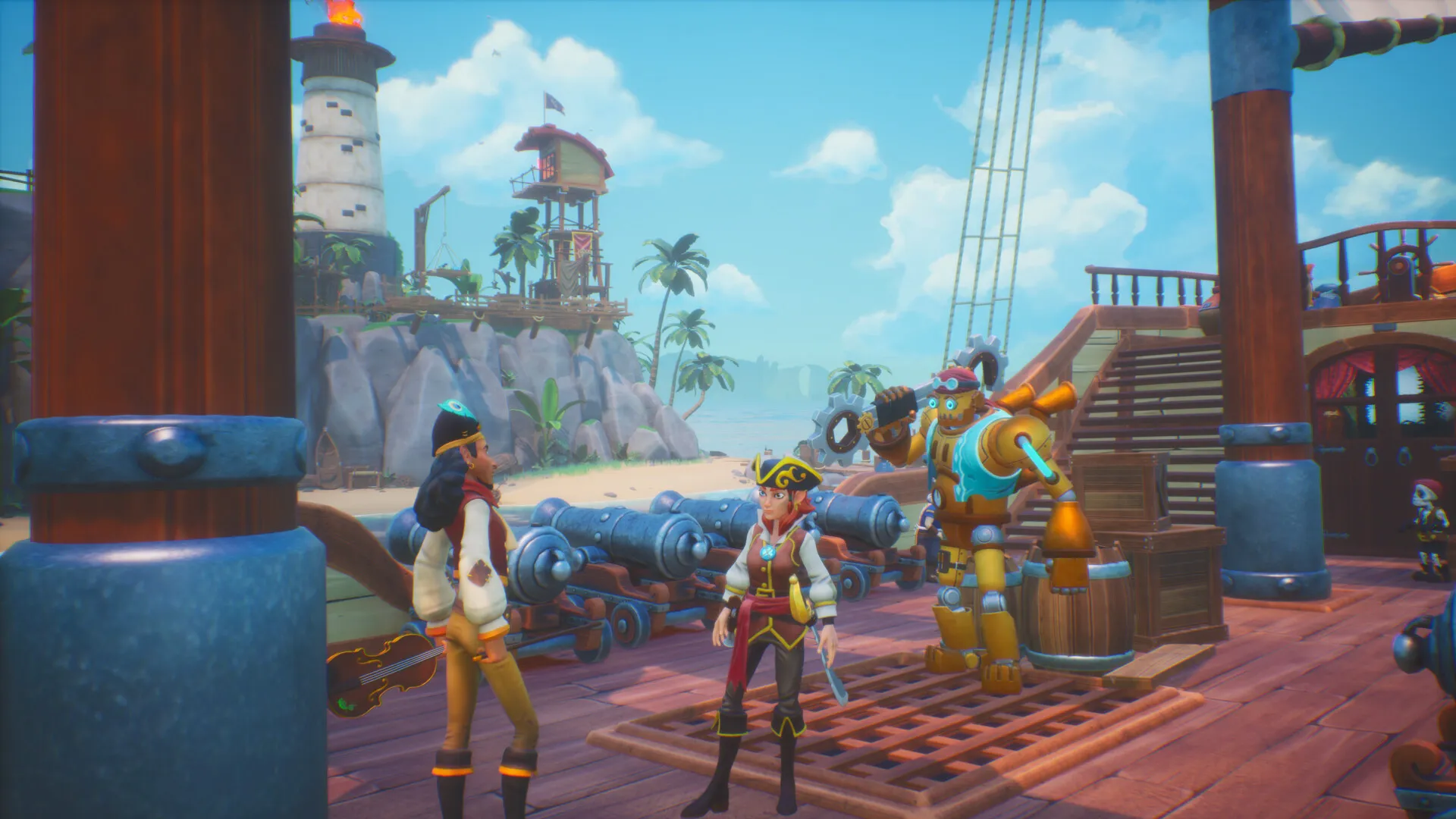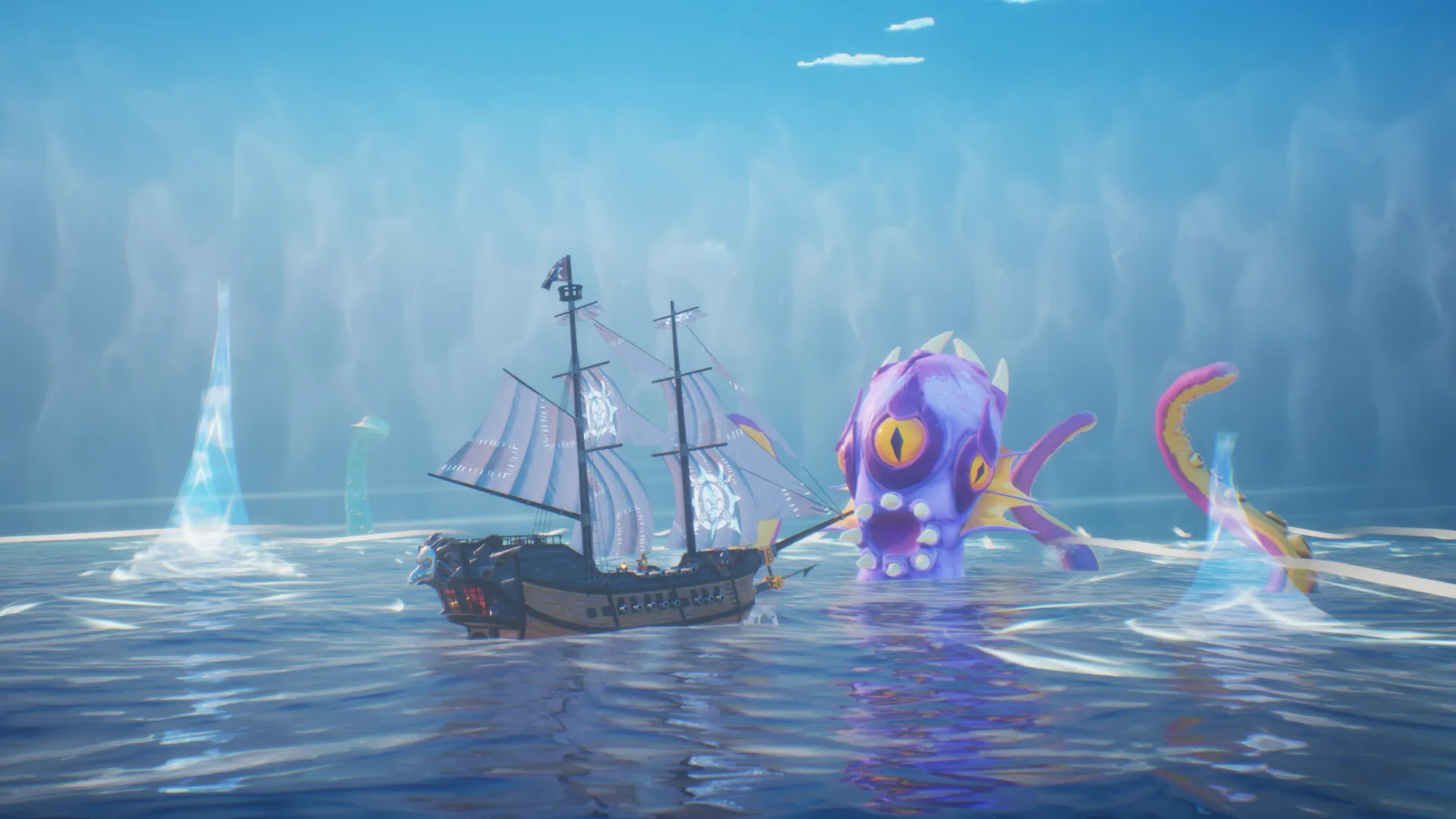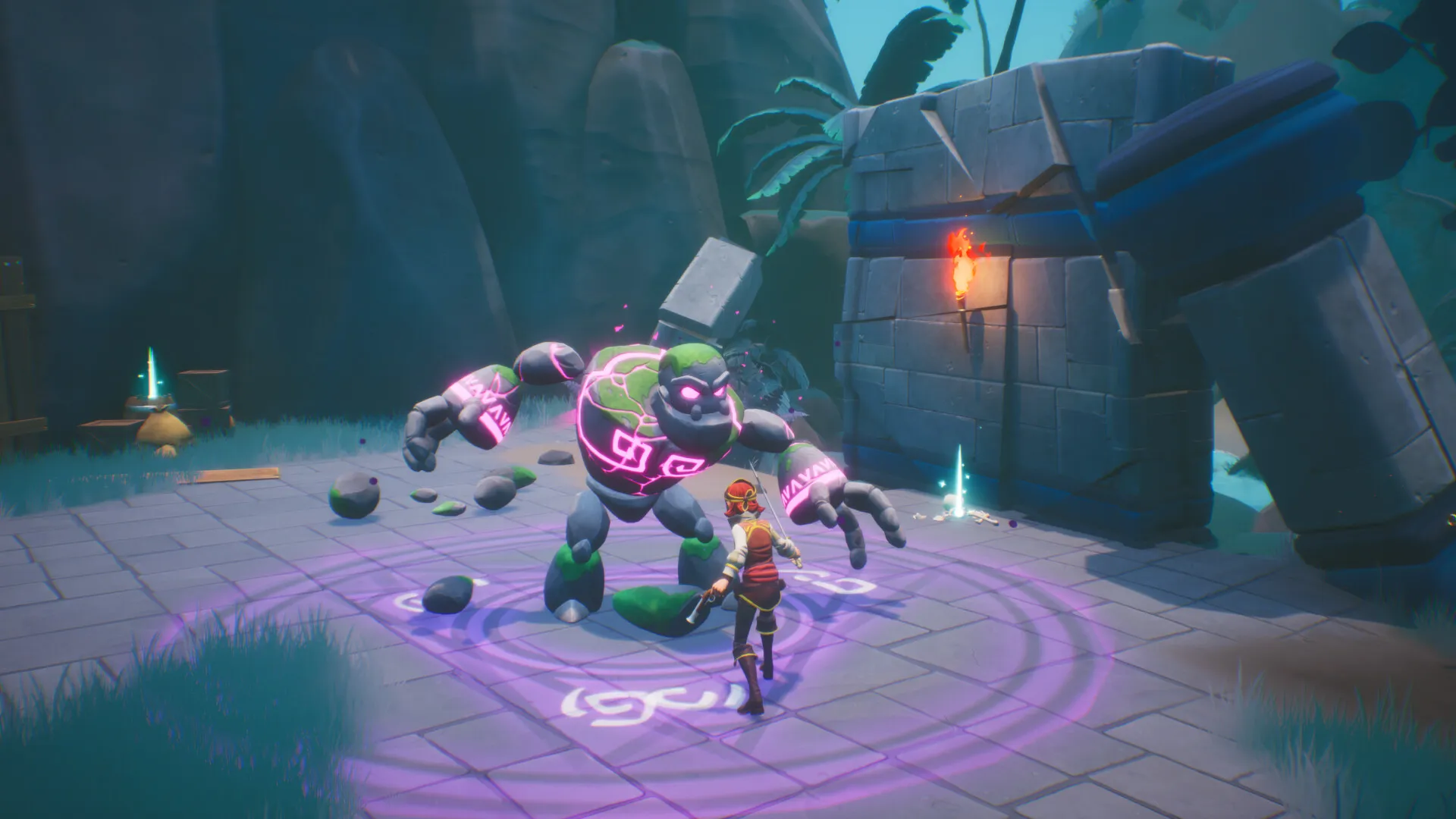Trident’s Tale sets sail with a familiar premise, presenting a world painted in the bright, cheerful colors of a Saturday morning cartoon. The adventure centers on Ocean, a young island dweller with ambitions of becoming a legendary pirate.
Her mundane life is upended when she discovers an ancient, mysterious artifact. This discovery paints a target on her back, drawing the attention of an army of undead skeletons who attack her home. Forced to flee, Ocean embarks on a grand quest across the high seas.
Her mission is to locate the remaining lost fragments of the Trident, a weapon of immense power, and prevent it from falling into the hands of a great evil. The game immediately establishes its scope: a vast ocean dotted with islands to explore, promising a lighthearted tale of treasure hunting and swashbuckling.
An Unforgiving Blade
Once on solid ground, the game’s core loop involves exploring a variety of islands through straightforward action-platforming. These environments are often filled with light puzzles inside temples or spike-filled trap corridors that require careful timing to pass. While platforming is a standard affair, the combat system presents a much steeper challenge.
Ocean wields a sword for light and heavy attacks and has a dodge for defense. The critical omission is any form of block or parry, a decision that defines every encounter. Enemies are hyper-aggressive, attacking in swarms without waiting their turn. This frequently results in fighting multiple melee skeletons while dodging projectiles from off-screen foes.
The player’s own attack animations feel slow and deliberate, especially heavy attacks, leaving Ocean vulnerable and making combat a difficult, often frustrating, affair. This difficulty is managed through a companion system. As Ocean recruits a crew, she gains special abilities, such as a healing song from the musician Pedro or a devastating cannonball assault from the naval officer Helen.
These powers, upgraded with a drink called Grog, become essential tools for survival. Progression is tied to a simple crafting system where blueprints and materials gathered from the world are used to improve Ocean’s sword, armor, and gun.
Simple Seas, Tedious Battles
The naval portion of Trident’s Tale feels heavily inspired by other pirate titles like Assassin’s Creed: Black Flag, but with a simpler execution. Sailing the open world requires managing your sails; you can raise them for high speed at the cost of steering, or lower them for sharp, controlled turns.
The ship itself can be customized with new cannons, sails, and figureheads, each part affecting stats like damage or handling. This creates a situation where you may have to equip a visually unappealing piece for its superior benefits. Naval combat is a simple affair of pointing the camera in a direction and firing your cannons.
Fights, particularly against boss ships, can become lengthy engagements of circling one another and slowly chipping away at a large health bar. The companion abilities transfer to ship combat and are just as important here, with some powers capable of turning a long battle into a quick victory. The rewards for sinking enemy vessels, however, often feel paltry, which can discourage engaging in battles outside of main story requirements.
A Cartoon World of Adventure
The game’s entire presentation is built around its cartoonish aesthetic. The world is rendered with sharp, vivid colors, giving it a clean and accessible look that could appeal to a younger audience. Some may find this style charming, while others might perceive it as low-budget.
This tone extends to the story and its characters. The narrative is a classic, uncomplicated pirate yarn about saving the world, and the dialogue is consistently lighthearted and simple. The fully voice-acted cast of quirky characters, from a friendly skeleton to a chemist who likes explosives, fits neatly into established pirate archetypes.
Supporting this atmosphere is a well-crafted soundtrack. The music shifts effectively between jaunty sea shanties while sailing and more fittingly orchestral scores when exploring mysterious temples, consistently elevating the feeling of adventure.
Charm Weighed Down by an Anchor
A strange friction exists at the heart of Trident’s Tale. Its kid-friendly, cartoon presentation seems to promise a casual experience, but the gameplay is often punishingly difficult. The aggressive enemy swarms and instant-death traps—where a single misstep off a cliff or into spikes means a game over screen—create a level of challenge that feels disconnected from the game’s cheerful exterior.
This difficulty is compounded by a general lack of polish. The controls can feel stiff, the camera is frequently uncooperative, and animations are slow. The autosave system is particularly unreliable, making frequent manual saves a near necessity to avoid losing progress. Yet, the game maintains a certain pull.
The core loop of sailing to a new island, overcoming its challenges to find new materials and blueprints, and then returning to your ship to craft a better sword or stronger hull is satisfying. It provides a clear and tangible sense of growing stronger. This makes Trident’s Tale a title for a specific kind of player: a pirate enthusiast who values a charming world and a sense of adventure enough to look past some significant technical and design-related flaws.
The Review
Trident's Tale
Trident's Tale is a charming pirate adventure struggling to stay afloat under the weight of its own frustrations. Its colorful world and satisfying crafting loop provide a solid reason to explore, but the journey is constantly hampered by clunky, unforgiving combat and a general lack of polish. The jarring difficulty feels at odds with the kid-friendly presentation, creating an experience that only the most patient swashbucklers will see through to the end. For others, the rough seas will prove too tiresome.
PROS
- A charming and colorful cartoon world.
- The progression loop of exploring and crafting is rewarding.
- An atmospheric soundtrack with excellent sea shanties.
CONS
- Combat is clunky, difficult, and unforgiving.
- Lacks polish, with stiff controls and an unreliable save system.
- Naval battles are often slow and tedious.
- The high difficulty feels disconnected from the lighthearted tone.

















































